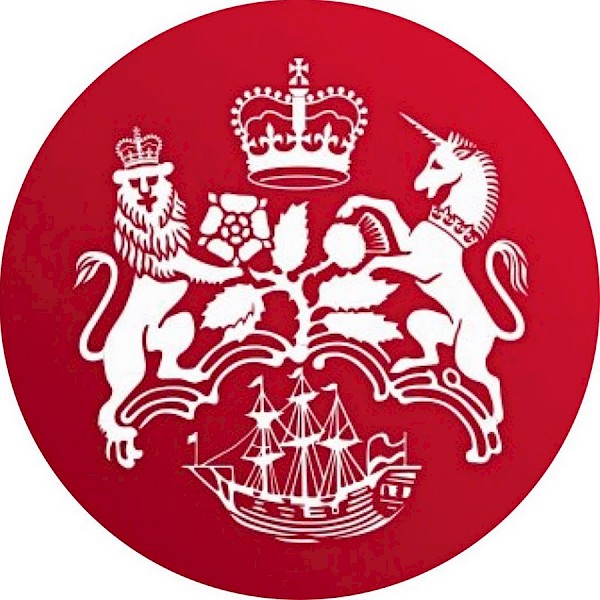What’s Next for The UK Digital Economy?



With Brexit and the presence of tech giants, can the UK digital economy stay competitive and should we rely on a British Silicon Valley to fix our economy?


Silicon Valley has the status of being the world’s pre-eminent tech hub, kickstarted more than half a century ago by the convergence of public and private sector funding and a steady flow of highly skilled graduates.
On the other hand, the UK has Silicon Roundabout (Shoreditch), Silicon Glen (East Kilbride,) and Silicon Fen (Cambridge) – but has so far failed to launch tech titans on the scale of Facebook, Google or Uber. Looking ahead, what’s next for the UK digital economy and can the UK compete with the rest of the world?
According to the Tech Nation 2018 report, the answer is an emphatic yes. It identifies London as the world’s third highest performing startup ecosystem – behind Silicon Valley and New York, and ahead of Beijing, Tel Aviv and Berlin. The capital is also rated as the second most connected tech ecosystem in the world, with 25% of entrepreneurs worldwide having a significant relationship with two or more London-based entrepreneurs (compared to 33% for Silicon Valley, which sat in first place).
Indeed, the UK has a number of significant advantages in terms of its digital economy. Noelle Baquiche, Angel Investor and Head of Growth at SeedLegals comments, “The UK has the ability to attract diverse global talent, a ready-availability of seed capital and language parity with some of the largest markets in the world.”
However, Noelle argues that London’s gravitational pull on the country is actually a disadvantage for the UK. “Rapid government intervention is needed to stimulate growth – particularly the development of infrastructure to support distribution of industry specialisations across major cities around the UK, as seen in Germany,” she says.


Programmes like Tech Nation, incorporating Tech City UK and Tech North, have sought to drive interest in the sector, encouraging collaboration and community connections. It also points businesses towards resources made available by the Department for International Trade and the Mayor of London as well as from British Chambers of Commerce. However, the DfIT is “a bit of a well kept secret,” says Ian Collins, Co-Founder of Go To Market Global – and entrepreneurs would do well to make more of the resources that it offers and there’s little doubt that the department is making a difference in pushing UK Inc. The government’s R&D tax credits, meanwhile, receive almost universal praise.
And there’s little argument that tech plays an important part in the national economy. The Tech Nation report showed that the sector is expanding at 2.6 times the rate of the rest of the UK economy and noted that workers in the field are significantly more productive than those across non-digital sectors.


When it comes to international business relations, however, there is also the looming question of Brexit. There has been a sharp decline in net migration of EU citizens to the UK since the referendum – and Berlin and Paris are lined up as potential contenders to displace London as Europe’s tech capital. Will the change take the UK off the international map?
“The government is dragging its heels in conceiving, implementing and promoting a functional STEM visa system,” says Noelle. “It’s the lifeblood of the UK’s digital economy, and it’s being sabotaged by gross bureaucratic incompetency.”
Ian disagrees about the scale of the challenge, however. “For the digital tech sector, I don’t see a huge impact,” he says. “We talk to every one of the brands that comes to our workshops [typically mid-market, digital tech companies with a £2m to £50m turnover and looking proactively to expand internationally] and out of 600 that have been through, probably only two or three have ever mentioned Brexit.”


As a counterpoint to a drought of new arrivals, there is also the brain drain of Britons heading to America to seek their fortunes – which inevitably slows down the country’s domestic flywheel of success. The UK has the two top-ranked universities in the world (as well as Imperial at number 8), so there’s clearly no shortage of talent. Nevertheless, given that education funding has fallen and will be lower than 2015 levels in the coming years, there’s certainly a case to be made that investing in schooling is investing in the digital economy of the future.
Going beyond that, though, a unique aspect to Silicon Valley is the generations of talent that it is has hosted – and which have nurtured and funded subsequent waves of businesses (just look at the ever-extending reach of the PayPal mafia). Naturally, this is something that happens organically. However, it’s up for debate whether it’s even in the national interest to encourage the growth of behemoths like Google or Facebook.

“The right thing for us to be doing as a nation is to be growing profitable business and not looking at valuation as the driver,” says Ian. He emphasises that we need not just a culture of entrepreneurialism but an appreciation of business values and a solid bottom line. “The only way we’re going to fix [our economy] is if we can start to generate more value by creating more GDP,” he says. “You can’t do that necessarily by having billion dollar-valuation companies that don’t make any money and don’t contribute beyond PAYE. They’ve got to be generating profits and paying in via that regime, as well. I think that’s doable without having to become a nation of unicorns.”
And the growth of the tech sector may very well shape the direction of the years ahead, he argues. “I believe passionately that we can use digital and tech as a nation to mitigate the ramifications of Brexit,” he says. “It’s going to be hard during that transition for the brick and mortar companies to bear the brunt, but digital transformation will reshape those businesses and I hope it accelerates that sort of activity. If it weren’t for Brexit, there wouldn’t be the impetus for those companies to necessarily have to change – so there’s a positive in there.”
Noelle is similarly optimistic about the future. “Despite Brexit, [the country’s advantages] will see the the UK continuing to play a pivotal role in driving digital innovation,” she says.
What’s not in any doubt is that digital technology will play an ever-increasing part in our lives – and may very well set the course for the UK through Brexit and beyond.

Empiric is a multi-award winning business and one of the fastest growing technology and transformation recruitment agency's specialising in data, digital, cloud and security. We supply technology and change recruitment services to businesses looking for both contract and permanent professionals.

Read more (pdf download)
Empiric are committed to changing the gender and diversity imbalance within the technology sector. In addition to Next Tech Girls we proactively target skilled professionals from minority groups which in turn can help you meet your own diversity commitments. Our active investment within the tech community allows us to engage with specific talent pools and deliver a short list of relevant and diverse candidates.
For more information contact 02036757777 To view our latest job opportunities click here.